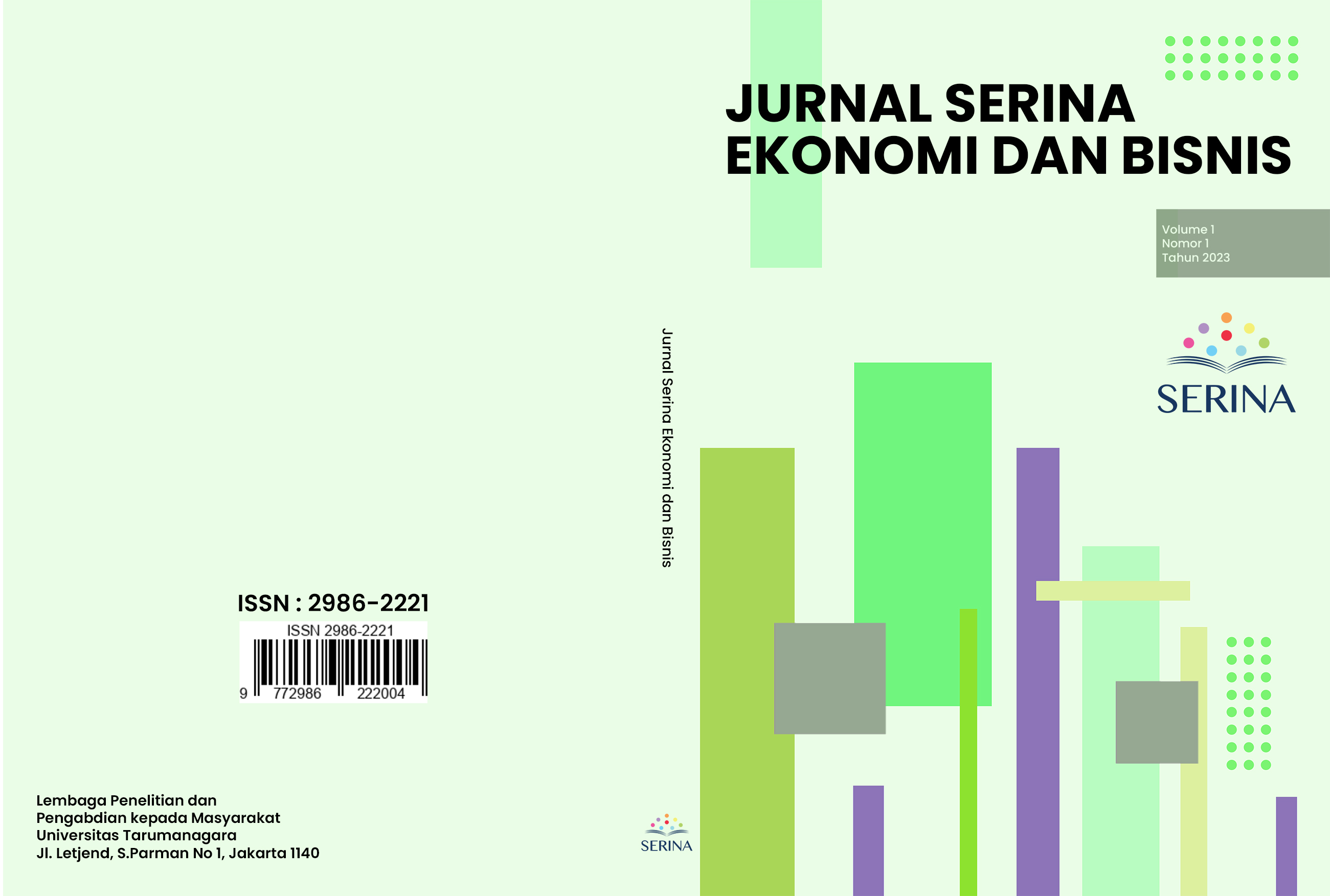MEMPERTIMBANGKAN DASAR ETIS TANGGUNG JAWAB MORALAKUNTAN DARI PERSPEKTIF ETIKA EMMANUEL LEVINAS
Main Article Content
Abstract
The development of a free market economy that is massive and competitive and the desire to reap huge
profits instantly has given birth to fraudulent business practices. One of the unethical business practices is
the manipulation of financial reports by accountants. In some cases, public accountants turn loss-making
company financial statements into profits. In this case, professional accountants already have a moral
umbrella in the form of a code of ethics for the accounting profession as a basic guideline in carrying out
accounting practices. The code of ethics for the accounting profession emphasizes that accountants must
adhere to professional principles such as responsibility, public interest, maintaining integrity, objectivity,
increasing competence and professionalism, being independent, applying the precautionary principle,
maintaining confidentiality, and must comply with the rules. ethics for the accounting profession. Law
Number 5 of 2011 concerning The Public Accountants also emphasizes that public accountants must behave
properly, be honest, be responsible, and have high integrity. However, in several major cases in Indonesia,
the credibility, integrity, honesty and responsibility of public accountants to the state and the wider
community have been questioned. Why does this happen so often? This article will analyze philosophically
the relevance of Emmanuel Levinas's ethical thoughts for the ethical responsibilities of accountants. The
results of library research using the content analysis method show that for Levinas the ethical-moral basis
for accountants' ethical responsibilities is not something normative-pragmatic but substantial-ontological.
The ethical basis of the moral responsibility of accountants is not on the autonomy, freedom,
professionalism and competence of accountants as subjects but on the subordination and intersubjectivity
between the subject and the "Others" (the Others). For Levinas, responsibility towards the "Others" (the
Others) is characterized as ethical, asymmetrical, and absolute.
Article Details
Section

This work is licensed under a Creative Commons Attribution-NonCommercial-ShareAlike 4.0 International License.
References
Baud, C., Brivot, M., & Himick, D. (2019). Accounting ethics and the fragmentation of
value. Journal of Business Ethics, 168, 373–387.
https://doi.org/10.1007/s10551-019-04186-9
Becker, P. A. (2013). The contribution of emmanuel levinas to corporate social
responsibility and business ethics in the post-modern era. Journal of
International Business Ethics, 6(1-2), 19-26.
Blok, V. (2017) Levinasian ethics in business. Springer.
https://doi.org/10.1007/978-3-319-23514-1_97-1
Gunarwanto (2021, Juni 2). Menangkal praktik nakal akuntan publik di BUMN. Birokrat
Menulis.
https://birokratmenulis.org/menangkal-praktik-nakal-akuntan-publik-di-bumn/
Josh, D. (2016). What is philosophical methodology?. The Oxford Handbook of
Philosophical Methodology. Oxford University Press.
Komite Etika Ikatan Akuntan Indonesia (IAI). (2020). Kode etik akuntan Indonesia.
Ikatan Akuntan Indonesia.
http://www.iaiglobal.or.id/v03/files/file_berita/Kode%20Etik%20Akuntan%20I
ndonesia%20-%202020.pdf
Levinas, E. (1969). Totality and infinity. Duquesne University Press.
Levinas, E. (1985). Ethics and infinity. Duquesne University Press.
Macintosh, N. B., Shearer, T., & Riccaboni, A. (2009). A levinasian ethics critique of the
role of management and control systems by large global corporations: The
general electric/nuovo pignone example. Critical Perspectives on Accounting,
(6), 751-761. https://doi.org/10.1016/j.cpa.2008.02.004
Magnis-Suseno, F. (2016). 12 tokoh etika abad 20. Kanisius.
Rhodes, C. (2019). Disturbing business ethics: Emmanuel levinas and the politics of
organization. Routledge.
Ross, G. M. (2011). Philosophical research method in education. Subject Centre for
Philosophical and Religious Studies of the Higher Education Academy.
Safitri, K. (2022, Maret 25). Laporan keuangan bukalapak salah catat, akuisisi rp 14,3
miliar ditulis rp 14,3 triliun. Kompas.
https://money.kompas.com/read/2022/03/25/113000126/laporan-keuangan-buka
lapak-salah-catat-akuisisi-rp-143-miliar-ditulis-rp-143
Schweiker, W. (1993). Accounting for ourselves: Accounting practice and the discourse
of ethics. Accounting Organizations and Society, 18(2-3), 231–252.
Shearer, T. (2002). Ethics and accountability: From the for-itself to the for-the-other.
Accounting, Organizations and Society, 27(6), 541–573.
1016/S0361-3682(01)00036-8
Sheffield, E. 2004. “Beyond Abstraction: Philosophy as a Practical Qualitative Research
Method”. The Qualitative Report, 9(4), 760-769.
Shvets, S. (2021). The unethical nature of corporate ethics codes: A levinasian critique.
Bachelor Thesis. Erasmus University Rotterdam.
https://www.academia.edu/80107255/The_Unethical_Nature_of_Corporate_Eth
ics_Codes_A_Levinasian_Critique
Smith, J. & Small, R. (2017). Is it necessary to articulate a research methodology when
reporting on theoretical research? BCES Conference Books, 15.
https://bces-conference-books.org/onewebmedia/2017.202-208.Juliana.Smith_
Rosalie.Small.pdf
Sobon, K. (2018). Konsep tanggung jawab dalam filsafat emmanuel levinas. Jurnal
Filsafat, 28(1), 47-73.
The International Federation of Accountants (IFAC) (2016). Handbook of the Code of
Ethics for Professional Accountants. IFAC.
Van de Ven, B. W. (2005). The (Im)possibility of a levinasian business ethics: Towards an
interpretation of the ethical in business. Paper. Tilburg University.

